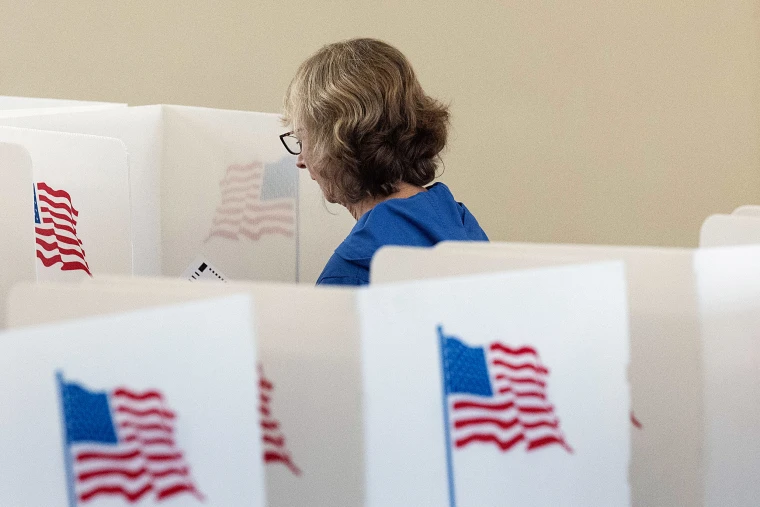Michigan’s presidential primary presents a clear path for Democrats: on Tuesday, 117 delegates are at stake in a state where President Joe Biden advocated for an earlier spot on the 2024 calendar.
However, the situation is more intricate for Republicans.
The outcome of the GOP primary will determine the allocation of 16 out of Michigan’s 55 Republican National Convention delegates. The remaining 39 will be decided at a state party convention on Saturday, distributed based on the preferences of delegates from each congressional district.
Yet, it’s this state convention, or potentially conventions, where Republicans face significant challenges. The Michigan GOP finds itself mired in a peculiar and ongoing leadership dispute.
Two individuals, Kristina Karamo and former Rep. Pete Hoekstra, both claim to chair the state party and have scheduled conflicting conventions. While the Republican National Committee has endorsed Hoekstra as the rightful chair, there remains ambiguity over which convention will hold authority.

Hoekstra, whose convention is set in Grand Rapids, asserted in an interview with NBC News that those who believe they represent the Republican Party are welcome to convene elsewhere, but it won’t be recognized as a Republican caucus or convention.
On the other hand, Karamo, who refuses to yield control of state party assets, plans to proceed with her convention in Detroit. She contends that Hoekstra lacks the legal standing to call a convention, emphasizing the legitimacy of her position within the party.
Amid this chaos, the RNC has remained silent on how they would address rival conventions, declining to comment on the matter.
The roots of this turmoil trace back to four years ago when the Iowa Democratic caucuses faced significant issues, and Biden struggled until South Carolina. Following his eventual nomination and victory in the presidential race, Biden advocated for a reshuffling of the 2024 primary calendar, pushing Michigan to third place.
However, the GOP was resistant to an earlier primary, leading to a compromise where Michigan Republicans devised a hybrid model, blending primary results with a state party-run convention.
Adding to the complexity, Democrats secured control of all branches of Michigan’s state government in the 2022 midterm elections, leaving Republicans marginalized. Karamo, despite losing a bid for secretary of state, maintained grassroots support and won the race for state party chair.
However, her leadership was marred by allegations of mismanagement, leading to attempts to oust her and rallying around Hoekstra as her replacement. Nevertheless, Karamo refused to step down.
With rival conventions on the horizon, Republicans in Michigan face a dilemma of allegiance. Hoekstra emphasized that attendees must decide which convention to attend, implying that they bear the consequences of their choice.
Despite the RNC’s recognition of Hoekstra, Karamo remains undeterred, hinting at ongoing legal battles and potential challenges to the legitimacy of delegates elected at Hoekstra’s convention.
In this tumultuous environment, the Michigan GOP navigates a precarious path towards unity and clarity in its leadership.


